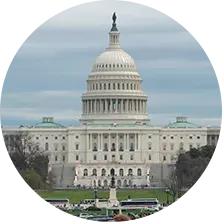Black History Month 2024
It is estimated that 53 percent of Black children will experience a CPS investigation by the age of 18, compared with 28 percent for Whites. At PCAA, we embrace the diversity of histories and cultures, recognizing their vital role in nurturing inclusive and supportive environments for all children. #BlackHistoryMonth2024
Black History Month 2024 Theme
Since 1976, every American president has designated February as Black History Month and endorsed a specific theme.
The Black History Month 2024 theme, “African Americans and the Arts,” explores the key influence African Americans have had in the fields of “visual and performing arts, literature, fashion, folklore, language, film, music, architecture, culinary and other forms of cultural expression.”
In celebrating the rich history of African Americans and the Arts, Prevent Child Abuse America puts into the national spotlight the abundance of the past and the present with an eye towards what the remaining twenty-first century has in store. This year, PCA America highlights Art for Change, welcoming you to explore the purpose and the impact of black art across the nation.
The role of fathers is unique and has great impact on children’s lives. Read here from our current board member, Dr. Clinton Boyd Jr., and former fellow of zerotothree as he honors BHM by speaking up on black fatherhood.
Origins of Black History Month
Black History Month is an annual celebration of achievements by African Americans and a time for recognizing their central role in U.S. history. Also known as African American History Month, this observance begins in 1915, half a century after the Thirteenth Amendment abolished slavery in the United States.
That September, the Harvard-trained historian Carter G. Woodson and the prominent minister Jesse E. Moorland founded the Association for the Study of Negro Life and History (ASNLH), an organization dedicated to researching and promoting achievements by Black Americans and other peoples of African descent.
By the late 1960s, thanks in part to the civil rights movement and a growing awareness of Black identity, “Negro History Week” had evolved into Black History Month on many college campuses.
President Gerald Ford officially recognized Black History Month in 1976, calling upon the public to “seize the opportunity to honor the too-often neglected accomplishments of Black Americans in every area of endeavor throughout our history.”
Black History Month is a time to honor the contributions and legacy of African Americans across U.S. history and society—from activists and civil rights pioneers such as Harriet Tubman, Sojourner Truth, Marcus Garvey, Martin Luther King Jr., Malcolm X and Rosa Parks to leaders in industry, politics, science, culture and more.
Supporting families to support children!
You too can help our children and all communities across our nation with a gift today.
Additional Resources
Educator Resources | National Civil Rights Museum
BLACK HISTORY THEMES – ASALH – The Founders of Black History Month
Black History Month | Smithsonian Institution (si.edu)
Celebrating Black History Month | ZERO TO THREE
What is the cause of racial disparity in child welfare? – Child Welfare Monitor
Share on Social
Take action and make your voice heard this year as we honor and celebrate African American artists through their crafts. We encourage you to share our graphics along with one of these suggested captions on social media platforms and tag us @pcaamerica
At PCAA, we embrace the diversity of histories and cultures, recognizing their vital role in nurturing inclusive and supportive environments for all children. #BlackHistoryMonth #AfricanAmericansAndTheArts #CarterGWoodson #DiversityInUnity
Take action with @pcaamerica this #BlackHistoryMonth and explore the history of African Americans and the arts with these cultural expressions. Celebrate Black History Month 2024 | National Museum of African American History and Culture (si.edu) #BlackHistoryMonth #AfricanAmericansAndTheArts #CarterGWoodson #DiversityInUnity
If you have any questions or concerns, please contact the PCA America communications team.




